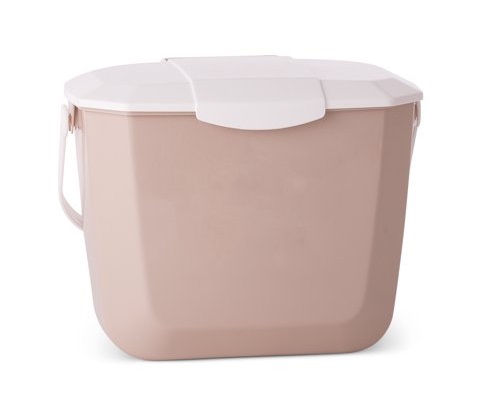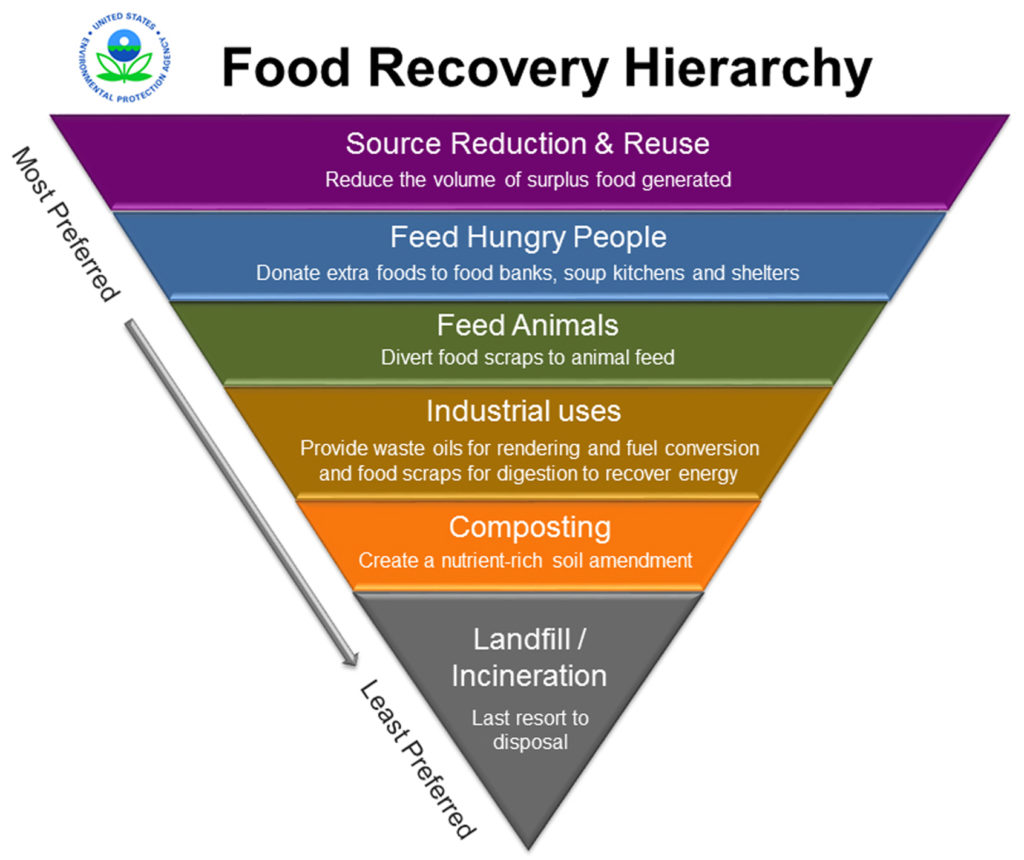Starting January 1, 2022, California State law (Senate Bill 1383) requires all residents, multi-family complexes, and businesses to recycle organic materials (i.e. food waste and green waste.)
The new requirements are part of a statewide effort to reduce harmful methane emissions. Recycling organic waste is a small change with big environmental benefits. Composting food scraps and green waste reduces the amount of waste that is taken to landfills, a major source of methane emissions. If everyone in the United States composted their food waste, the impact would be equivalent to removing 7.8 million cars from the road.
The City of El Centro offers programs to meet the needs of our residents and businesses. Please see below for program details.
RESIDENTIAL ORGANIC RECYCLING
Starting January 1, 2022, CalRecycle requires all residential customers to begin placing food scraps in the green waste container (green lid) rather than in the trash container (black lid). Residents will be receiving information on the program by mail soon in addition to the information here provided.
Items placed in the green container will be composted for more sustainable processing. The only thing that will change is how you sort your food scraps. Your trash, recycling, and green containers will still be serviced the same day, place, and time. We simply ask that you place any food scraps in the green container once the service becomes available.

Tips for Collecting Food Scraps
-Use a reusable container with a tight-fitting lid to collect food scraps in your kitchen.
-Empty your food waste container into the green barrel every few days. Wash your kitchen container frequently with hot water and detergent.
-Layer food waste between layers of green waste to help keep your container tidy.
–Chill it! Put leftovers in a container and keep them in your refrigerator or freezer until close to collection day.
Countertop Composting Pails
To help residents collect food scraps in their homes, the City will provide 2-gallon countertop composting pails to each household. The pails have a snap-tight lid, hand grips for dumping, a locking seal to prevent odors, and are dishwasher safe. They are small enough to sit on the counter or be placed under the sink or in a cabinet. More information to come.

Tips for Reducing Food Waste
Although composting food waste is a more sustainable alternative to sending food scraps to landfill, reducing the amount of food waste we generate is the best way to preserve and protect our environment.
- Californians throw away nearly 6 million tons of food scraps each year.
- A family of 4 can lose over $1,500 a year on wasted food.
- Growing and distributing food takes valuable resources like water and energy. Reducing food waste helps save these resources, address food insecurity, and can save you money. While composting food scraps is a better alternative to landfill, the most sustainable thing we can do is to consume the food we buy.
- Read more about reducing wasted food at home: Reducing Wasted Food At Home | US EPA
- Check out the downloadable tools below for food-saving tips: www.epa.gov/sustainable-management-food/food-too-good-waste-implementation-guide-and-toolkit
- You can save money and food by learning how to properly read food labels. Learn more at https://www.stilltasty.com/

Benefits of Composting
-While reducing food waste is the most important step we can take to save money and lead a more sustainable life, composting is a more sustainable alternative to landfill.
-Recycling food and organic waste helps to reduce harmful methane emissions that contribute to global warming. In landfills, food waste produces a lot of methane, a potent greenhouse gas that causes climate change.
-Compost helps enrich and return valuable nutrients to our soil.
To learn more about composting at home, please contact El Centro’s Environmental Compliance Division at 760-337-3177
COMMERCIAL ORGANIC RECYCLING
Commercial Food Waste Recycling
Most El Centro businesses required to enroll are currently enrolled in the Commercial Food Waste Recycling Program and have access to food waste recycling containers. Food waste containers are typically located near trash enclosures and have a green lid stamped “food waste.”
The containers can be used to collect food scraps, including meat, dairy, bones, fruit and vegetable trimmings, breads and grains, eggshells, plate scrapings, and coffee grounds. Food waste and plate scrapings must be placed in a compostable plastic bag and placed in the shared food waste container for pickup.
Businesses that already participate in the food waste recycling program are encouraged to regularly revisit the program with their staff and ensure that they are recycling the maximum amount of food waste possible. The State of California will require the City to perform inspections and enforcement to ensure compliance.
Commercial Green Waste Recycling
Starting January 1, 2022, any business that produces landscape/green waste must begin diverting the material from the landfill. Due to space constraints, creating a separate green waste collection program is not practical for some businesses. If you produce green waste, the most efficient way to collect and divert green waste is likely through your landscape contractor. Businesses can comply with the new regulations by ensuring that landscape maintenance contracts are updated to require that the landscaper divert green waste material from landfill. By doing so, you are ensuring that green waste produced by your business is handled appropriately. Per State law, businesses that contract with landscapers to divert their green waste must complete a Third-Party Waiver with the City. See below SB 1383 Waiver Request Form.
Commercial and Multi-Family Waiver
Certain businesses and multi-family complexes with five or more units may qualify for waivers from mandatory organic recycling programs. Only those who have requested and received a waiver from the City can avoid mandated participation.
To learn about available exemptions, please review the attached SB 1383 Waiver Request Form
Questions?
Call Environmental Compliance at (760) 337-3177


